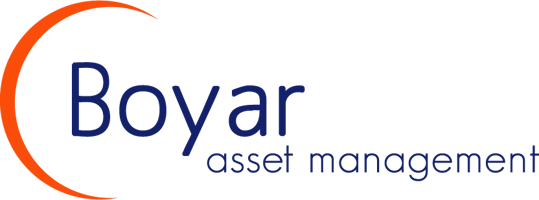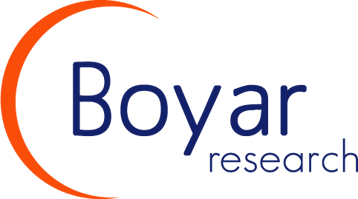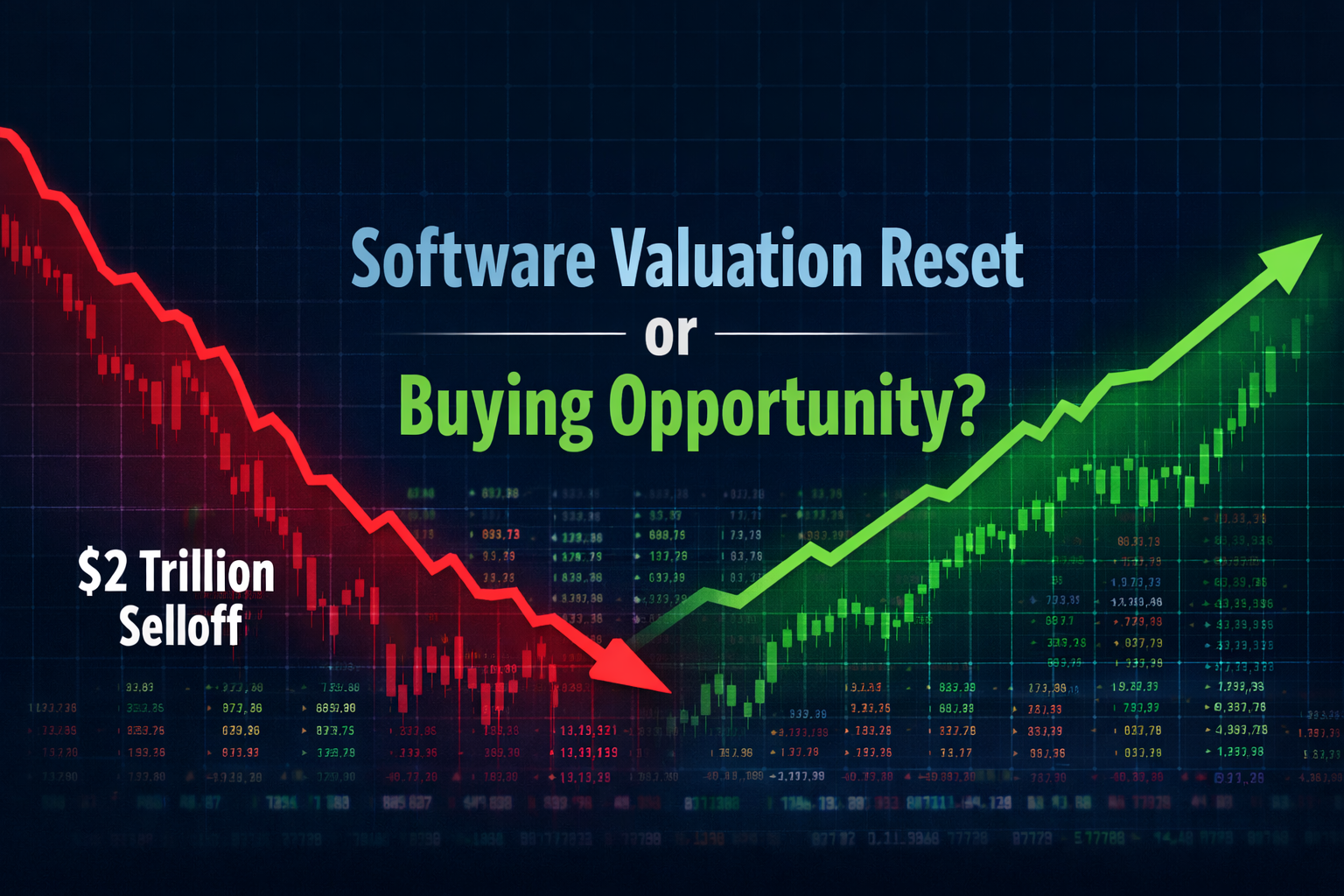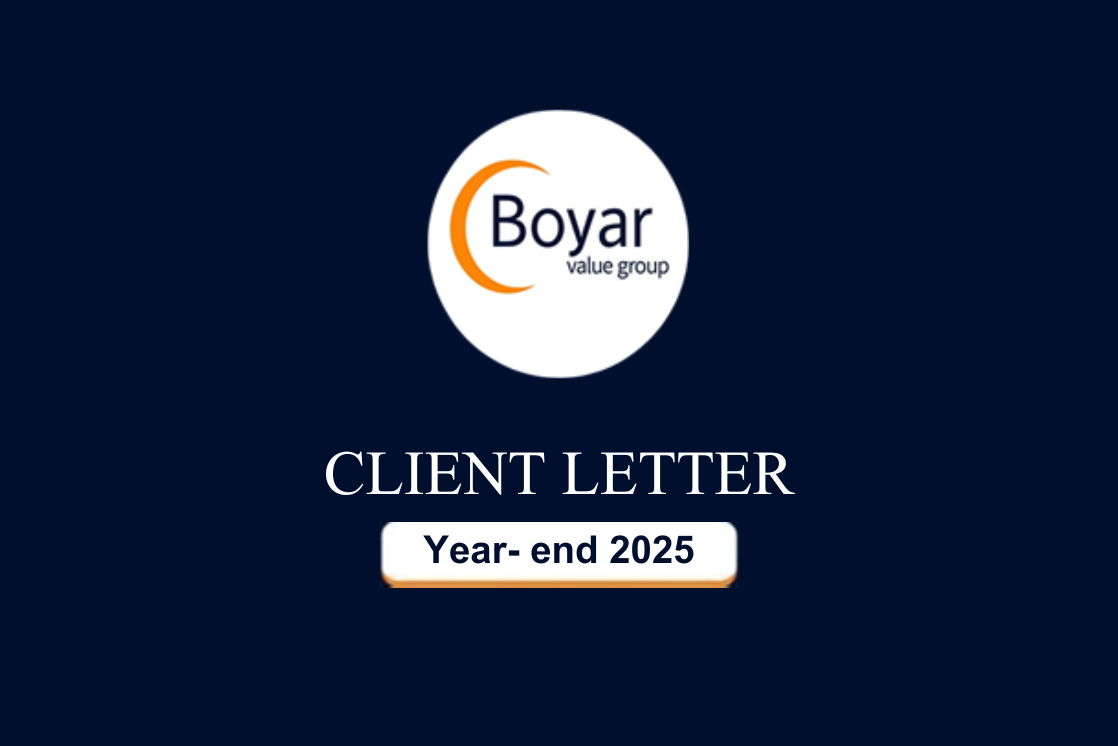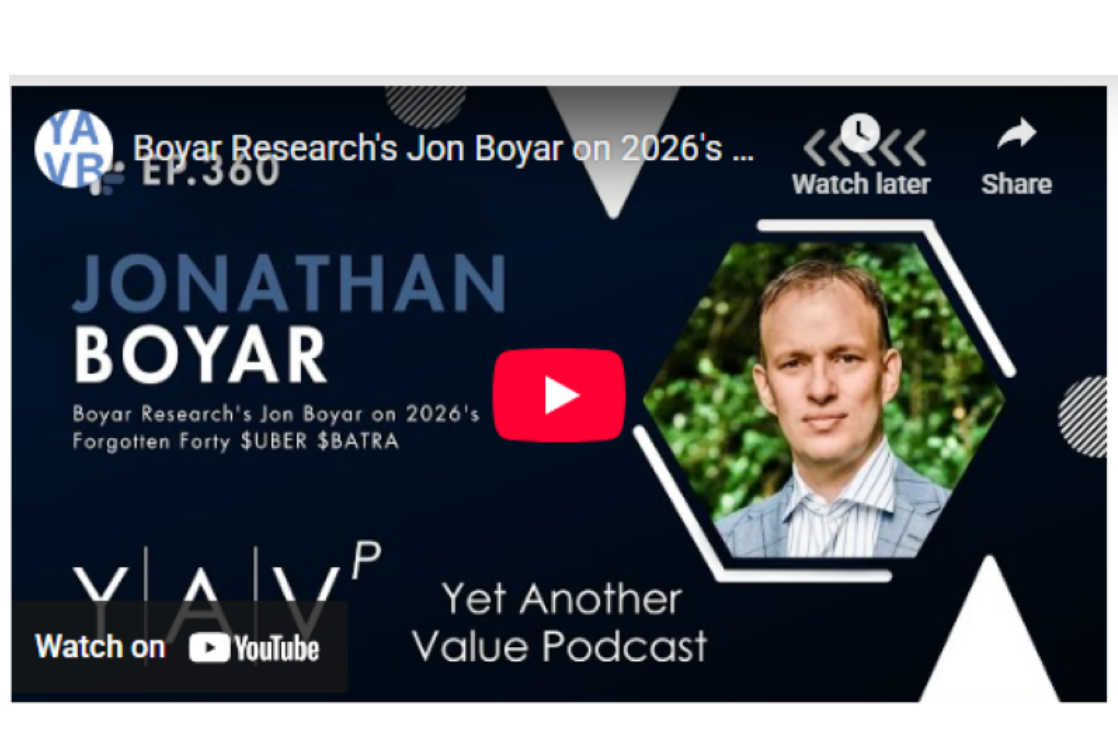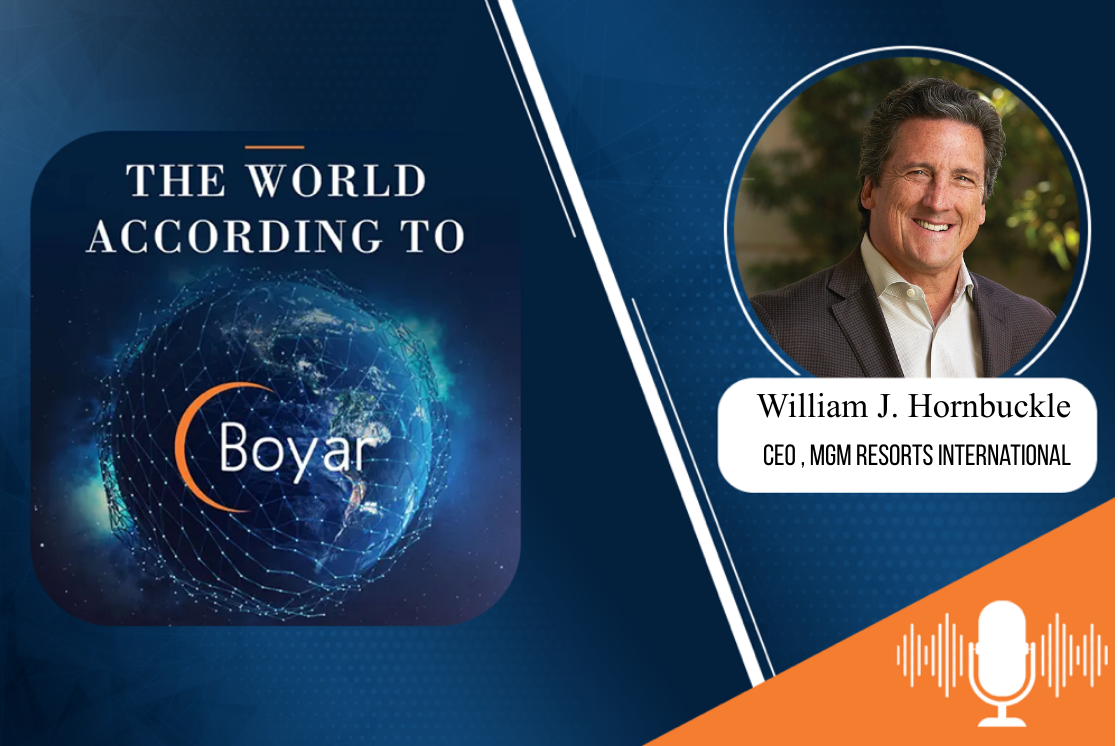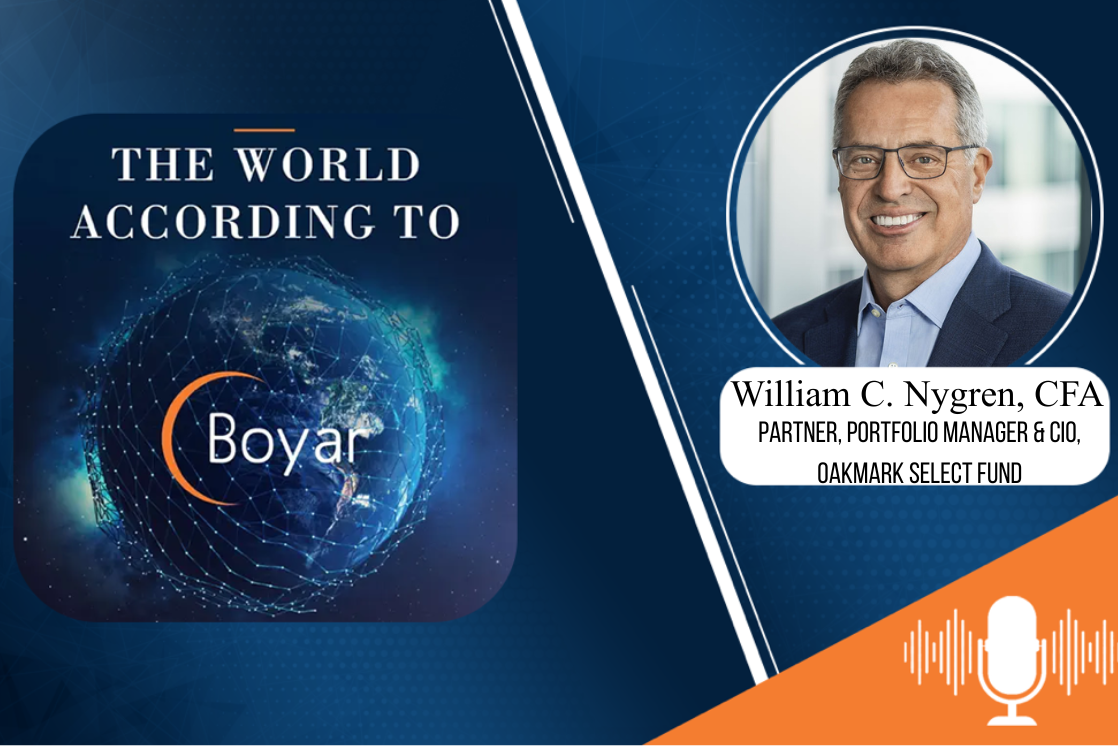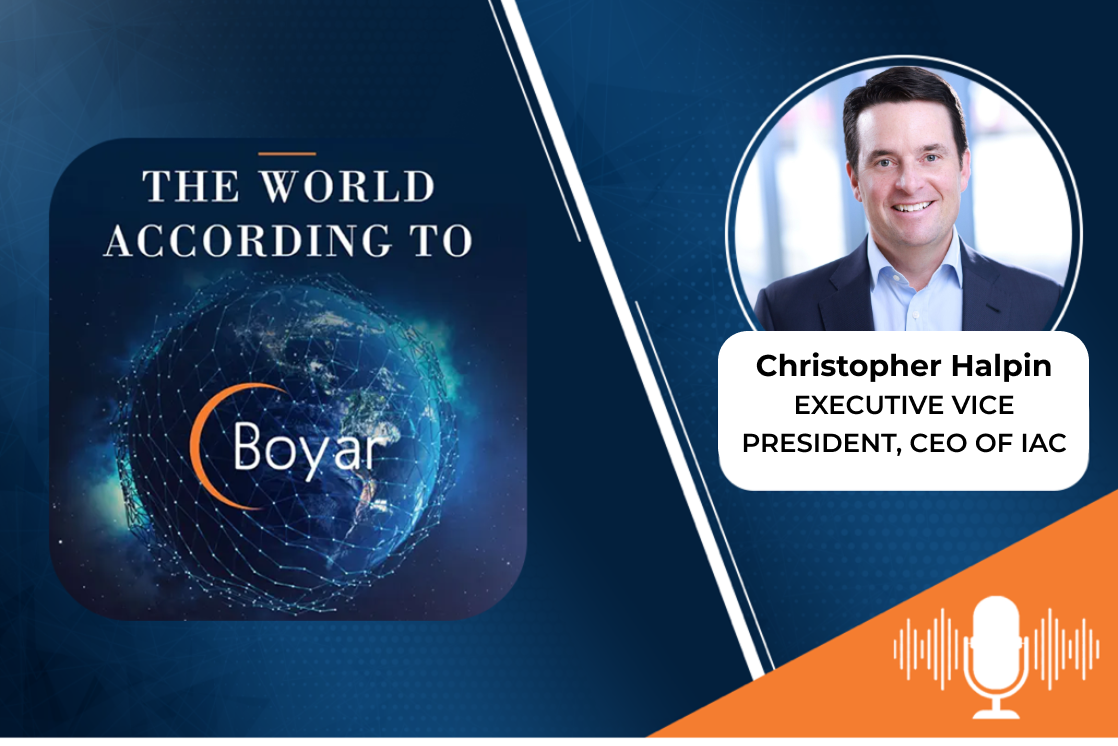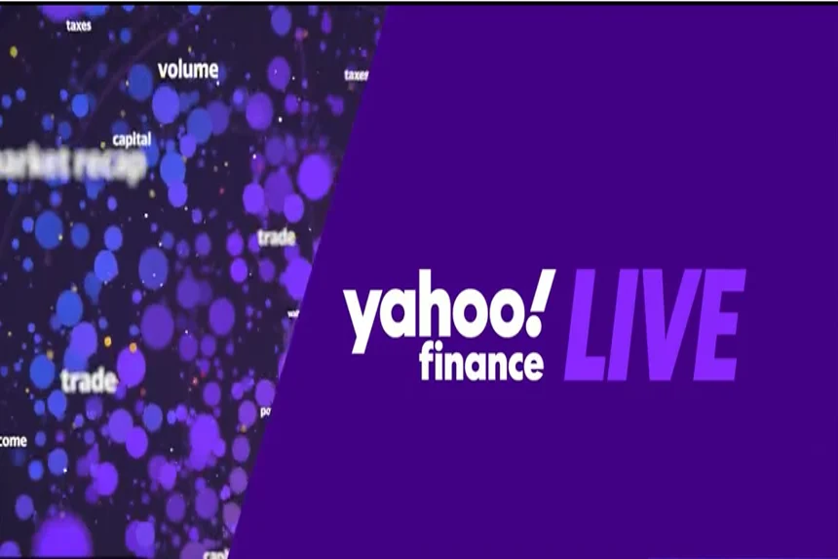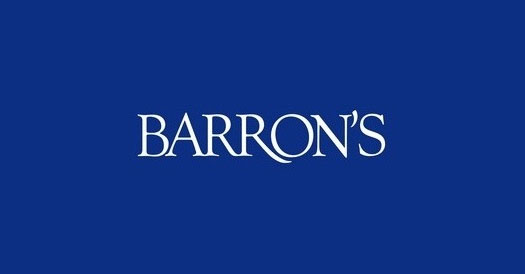John Rogers, Co-CEO of Ariel Investments on founding Ariel at the age of 24, the techniques he employs when investing on behalf of clients and more…
Mellody Hobson, President & CEO of Ariel Investments, on the advantages of a diverse workforce and the changing media landscape. - Value Investing Podcast
Steve Einhorn, Vice Chairman of Omega Advisors, Inc., on investing in an unpredictable political environment and how Omega blends microeconomics with fundamental investing. - Value Investing Podcast
Legendary Investor Leon Cooperman on asset allocation, interest rates, Berkshire Hathaway, and where he is currently finding value in the stock market. - Value Investing Podcast
The Interview Discusses:
- Founding Ariel (which now manages more than $16 billion) at the age of 24.
- Surviving the stock market crash of 1987 and how he turned this setback into an opportunity to grow both his firm as well as his reputation.
- Why sitting on corporate boards such as McDonalds and Nike have made him a better investor.
- How his investment process has evolved overtime.
- How he constructs portfolios in terms of both diversification of industries and individual stocks. He also discusses how he thinks about the liquidity of a stock when making an investment.
- Why he believes studying behavior finance is important.
- His thoughts on position sizing and when he decides to sell a stock.
- His investment thesis on both Madison Square Garden Entertainment and Madison Square Garden Sports.
And much more….
About John W. Rogers, Jr.
John’s passion for investing began at age 12 when his father began buying him stocks as Christmas and birthday gifts. His interest in equities grew at Princeton University, where he majored in economics, and over the two-plus years he worked as a stockbroker for William Blair & Company, LLC. In 1983, John founded Ariel to focus on patient, value investing within small- and medium-sized companies. While our research capabilities have expanded across the globe, patience is still the disciplined approach that drives the firm today. Early in his career, John’s investment acumen brought him to the forefront of media attention and culminated in him being selected as Co-Mutual Fund Manager of the Year by Sylvia Porter’s Personal Finance magazine as well as an All-Star Mutual Fund Manager by USA TODAY. Furthermore, John has been highlighted alongside legendary investors Warren Buffett, Sir John Templeton and Ben Graham in the distinguished book: The World’s 99 Greatest Investors by Magnus Angenfelt. His professional accomplishments extend to the boardroom where he is a member of the board of directors of McDonald’s, NIKE, The New York Times Company and Ryan Specialty Group Holdings.
John also serves as vice chair of the board of trustees of the University of Chicago. In 2008, John was awarded Princeton University’s highest honor, the Woodrow Wilson Award, presented each year to the alumnus or alumna whose career embodies a commitment to national service. Following the election of President Barack Obama, John served as co-chair for the Presidential Inaugural Committee 2009, and more recently, he joined the Barack Obama Foundation’s Board of Directors. John received an AB in economics from Princeton University, where he was also captain of the varsity basketball team.
Click Here to Read the Interview Transcript
Transcript of the Interview With John Rogers:
[00:00:00] [music
Jonathan Boyar: Welcome to the world. According to Boyar, where we bring top investors, bestselling authors and business leaders, to show you the smartest ways to uncover value in the stock market. I’m your host Jonathan Boyar. I’m really excited today as our special guest is legendary investor John Rogers, who is co CEO of Ariel investments, a value oriented investment firm that he founded at the age of 24 Ariel, which has roughly $16 billion in assets under management specializes in investing in small and mid-sized companies and is among the most respected institutions in the industry. John’s professional accomplishments extend to the boardroom where he sits on the board of McDonald’s Nike, the New York times company, John, welcome to the show.
John Rogers, Jr. Great to be here.
Jonathan Boyar We have a lot to discuss, and I, I realize your time is valuable. You know, in the introduction I just gave does not really begin to cover all your accomplishments, but, you know, as I was researching you for this interview, one of your achievements really stuck with me, you know, while in, in Silicon valley and maybe commonplace to have a 24 year old founder, it’s really unheard of in the investment management business. Can you take us through how you did it?
John Rogers, Jr. Oh, well thank you for bringing up those days. You know, it was amazing. Now Ariel is the 39 years old, almost 40 years old. And you know, I think the reason I was ready to start the company at a young age was a couple things. One was that my father had started buying stocks for me every birthday and every Christmas after I was 12 years old, instead of toys. And I fell in love with the markets. I had a broker in Chicago and then I had a broker across the street from campus at Princeton. And I spent as much time as I could with those role models and mentors learning about the markets. And I thought, if you loved the stock market, you became a stock broker. And I went to work for William Blair and company when I graduated, from Princeton. And it was a great place to train a great place to learn.
John Rogers, Jr. Cause as you know, Blair is our, you know, largest regional brokerage firm and you had all aspects of the investment bank there, the money managers, the brokers, the institutional sales people, et cetera. And I pretty quickly realized I was in the wrong business. I shouldn’t have been in the brokerage business. I really was meant to be an investment manager where I could develop a long term approach to investing. As I learned about that, I said, you know, if I can’t do this here at Blair, I’ll go off and start Ariel. And that experience again, was very helpful and giving me the confidence to start my early stocks worked out well. And that gave me confidence. And I also have to say that, you know, there was several African American entrepreneurs in Chicago who had done really well and started their companies at young ages. John Johnson had created Ebony and Jet magazine at an early age.
John Rogers, Jr. And George Johnson had created Afro Sheen a hair care product company at a very early age. So I think those African American role models gave me confidence that I could start Ariel investments at an early age. And then finally I have to say that, you know, I was lucky. I had friends and family who believed in me and they were willing to help me raise the first couple of hundred thousand dollars to open up the doors and be able to pay the salary of a high school buddy of mine and give us the time to develop a track record and get some interest going around our small company.
Jonathan Boyar Yeah, building that track record, obviously by definition it takes time. Was it hard to convince people, even if you had a good couple of years to give a 24 25, 26 year old, you know, some money to invest?
John Rogers, Jr. Well, I think we did a couple things that helped give people confidence in those, in those early years. One was, we started this newsletter called the patient investor and every issue I would talk about my views of the market. Talk about my favorite stocks, why I like the stock. And then I kept track of how the stocks performed on the back page. So people could see my thinking about the markets and see whether I was, you know, thinking creatively and had some logical thoughts around the markets. And we made the good decision to have the logo of the patient investor be a tortoise to remind people that old Aesop’s Fable that slow and steady wins the race. So I think that gave prospective investors some kind of confidence that we were gonna be prudent patient investors and not risky investors. And then the final thing was we went to friends and family also and raised about $500,000 and we put it what we called aerial fund. It was run just like a partnership, but it had a, a normal fee structure to it. And so we had a real live track record along with the, uh, paper track record that we had in our newsletter, uh, the patient investor.
Jonathan Boyar And you’d mentioned that in Chicago, there was a lot of very successful, you know, African American entrepreneurs. Did you gain access to any of them? Were any of them particularly helpful?
John Rogers, Jr. Yes, that was another really, you know, helpful part of our story, you know, growing up in the south side of Chicago and my parents had met at the university of Chicago law school and they knew some of these outstanding entrepreneurs and I had a chance to grow up with their children, go to grade school and high school with John Johnson’s daughter and son and George Johnson’s son, et cetera. So I did have great exposure to them whenever I had key questions or concerns as I was starting the business, I would go and see, you know, John Johnson go and see George Johnson. I still go and see George Johnson. Now he’s,, 95, 96 years old and still is sharp as a tack and still full of wisdom. And so, so helpful. So having those legends to lean on was critically important in those early years and giving me confidence to, to keep going.
Jonathan Boyar You probably needed a lot of confidence in, you know, you started in 84, 3 years later, you have the crash of 87 you’re 27, 28 years old. However you were at that time, you know, did you think you were going to fail then? Like that was a day that I can’t even imagine losing 20% or whatever it was in one day.
John Rogers, Jr. Yes. You’re too young to remember that it was a brutal day to lose over 20% in one day. I can actually remember I was at the wedding planner and I was having to keep stepping out of the meeting to get on the phone and see what was latest on the markets. It was a scary time, but in some ways it was a really, uh, defining time for us that Ariel, cause we kept telling people we’re value investors. We told people, we believed in Warren Buffett fit’s mantra that you want to be greedy when others are fearful or what the legendary John Templeton always talked about buying when there’s maximum pessimism. So this gave us a chance to prove to ourselves that we were true contrarian, that we were gonna be willing to buy when there was an extreme stress. And at the same time, I think it gave our customers confidence when they saw us buying more.
John Rogers, Jr. They heard me on the phone, I’d call up clients and say, send us more money. This is a once in a lifetime opportunity to buy bargains. And the fact that we bought bargains during that crisis of 87, set us up for really good performance coming out of that year and into 1988. And I think our fund was in the top five in the country in 1988 and we got to be co mutual fund manager of the year in a strange way. It really set us up and helped to create our brand that and show people that we really truly work in Tris and really were true value. Investors
Jonathan Boyar Just wanted to shift gears for a second and you sit on numerous corporate boards, Nike McDonald’s, New York times company, your co CEO, Melody Hobson, a former World, According to Boyar guests sits on the Starbucks and JP Morgan board. And, and I want to be very careful on how I phrase this question as I’m not implying in any way, you’re acting on any material non-public information as your reputation is pristine. And I’m sure you don’t own those stocks for clients anyway, but by sitting on these boards, you gain access to so many data points and are able to really have an unbelievable insight into the economy and the US consumer and somewhat in the same way Warren Buffett does by owning a railroad and, and other businesses. Does your board service make you a better investor?
John Rogers, Jr. I think for sure it does. You know, I tell people, you know, I used to be on the bank one board for a number of years and I think I’m a better banking analyst now because of that experience, I was on the Aon board for 18 years and work closely with pat Ryan and watched him build that great business. I think I’m a better professional services analyst, financial services analyst, because of that experience. I chaired the audit committee there. I learned an awful lot about how that works. I was on the McDonald’s board when, uh, stock was like $14 a share and Jim can Lupo came back as CEO and created the plan to win. They got the stock back on track and learning how, how important it is for a management team to have a plan to win during difficult times and executing that plan consistently lessons that are just so important.
John Rogers, Jr. And I’m looking for that plan to win and the research that I do on all the companies that we follow today. The other thing about being on boards is you build great relationships with the other board members who are in many different industries and it’s great to get their insights of what they’re seeing in the economy and what have you. But I would say there’s no particular advantage here at air. I’d love to say that we have some kind of a secret sauce and, and you know, real competitive advantage in this way. But if you think about it, you touched on Warren Buffett. Of course, he served on many, many boards over the years where you had great insights being on the board of Coca-Cola, et cetera, et cetera. You think of all the private equity firms, the KKRs of the world and the Blackstones and the Carlyles, all those executives serve on all the different boards, the companies that they invest in and get to see all aspects of the economy.
John Rogers, Jr. That’s very, very helpful. And then finally, I would say it’s the same if you’re on the board of a nonprofit, if you’re on the board of a university, like I and vice chairman of the university of Chicago, I learn a lot about how a major hospital is run and what’s happening with healthcare in this country, healthcare reimbursements and all the challenges that major hospitals and major universities face. And then finally, you’re also on the board with other key leaders like currently David Rubenstein’s, the chairman of the board of the university of Chicago to sit and talk with him and get his insights. It’s amazing, but that’s what he does. You know, he serves on literally dozens of boards over the years and that’s what makes David Rubicon, such a brilliant leader and thought leader because he has great relationships and his antenna is everywhere and he can have a sense of what’s happening around the world, literally because of his willingness to serve and help others and volunteer to chair the board at Duke and be involved again at the university of Chicago and other places. It’s the special, unique insights that he gained from those experiences.
Jonathan Boyar One of the things I really like to ask successful people is how they spend and organize their work day. How do you divide your day up in money management? There’s no typical day and, and I get it, but can you take us through that typical non-existent day? <
John Rogers, Jr. Yeah, well, parts are the same pretty much every day. You know, I get up in the morning and, and read five newspapers and that’s an important part of just getting the day started. I try to have a workout, you know, for 45 minutes to an hour every morning. And I started taking piano lessons roughly five years ago. So I try to get a little piano practices in the morning. So those are my three early morning endeavors. And then as I transition, as the morning starts to go, my co-manager of aerial fund, John Miller sends me the early research reports, uh, that have come out that morning from the major brokerage firms and see what you guys are thinking, see what others are thinking. And that’s gonna be a morning activity that John and I share. And then if it’s earning season, then you’re typically gonna, when you get to the office, you’re gonna have a series of calls with management teams.
John Rogers, Jr. Every quarter, we talk to all the management teams of all the companies we invest in our small and midcap value product. And so a good bit of the morning often is one of those calls after another seeing what’s changing this quarter, seeing if they’re executing their plan to win consistently or not from the different management teams. And then, you know, you typically gonna go to lunch at the Chicago club and often, and, you know, network with people. And it could be just could be something you’re doing from a civic standpoint or something you’re doing from a, you know, investment point of view or marketing point of view to build the brand and get the word out. But we think it’s important to get out and have lunch and, and network, you know, throughout the Chicago and business community. And you know, and then throughout the day, whenever you get free moments, you’re gonna be reading the latest magazines and newsletters.
John Rogers, Jr. And this is a job for readers as suggested earlier, you know, we were talking about how important it is to be able to get paid for reading. A good bit of my time is finding that free time to read the latest things that are going on in the market today. We had a conversation that Melanie hobson and created with a thought leader in behavioral finance and making sure that we’re on top of all the latest things that are happening, make sure that we’re keeping our research process fresh. So you’re, you’re trying to find time to make sure you’re thinking through things that you can improve on twice a week, we have a regular meeting with all of our portfolio managers and senior analysts to talk about what’s happening. We have a regular scheduling meeting to make sure that we’re on all the zooms and all the calls. And then typically as you move into the evening, there’s gonna be a dinner to go to or cocktail reception fundraiser around town for a community organization or a civic organization. We do believe it’s important to give back to the city that we love so much as, been so welcome to our small company.
Jonathan Boyar Sounds like an exhausting day, but a good one. One of the things that I read about you, I, I don’t know if it’s still true, but your technologically adverse, obviously, you know how to use it if you wanted to, but you choose not to really use email very much. You choose not to really use a computer. How does that help you
John Rogers, Jr. I was reading something. I think it was an Inc. magazine yesterday that was sent to me by a friend where Warren Buffett talks about, you know, how he spends his time and how important and how valuable time is. One of the suggestions in the article was that you control when you look at email and not allow emails to dominate your life. So I don’t email it all. You know, my assistant gets emailed the people that work at Ariel get emailed. I don’t, I don’t wanna have my time just hijacked by anyone trying to, to reach me. You can read more that way and absorb information better if you don’t have that barrage of, uh, email coming at you. So I think that’s been an important thing that I do to try to use my time more effectively. I often talk about that. I often go to McDonald’s and get away from the office and find quiet time there to read. It’s always sort of been a home away from home where, you know, I can just concentrate on things that are important to get done and think about what I hopefully need to be thinking about. So I am a believer that time being so important, I don’t want to let technology transform my life the way it can.
Jonathan Boyar I completely agree. And I wish I was able to, to do that. You know, email can be an unbelievable time waster and I fully agree it’s during the day. You know, how often are you looking at the market? Are you checking stock prices constantly once a day? You try not to. How does that work?
John Rogers, Jr. Yeah. Yeah. I learned a long time ago. It wasn’t healthy for me to check too often. You know, we’re long term investors, as I said, our logos at turtle, we do believe in patients. So I’m typically checking the markets. Maybe it’s three times a day, get the opening, get a midday update and then see things as the market’s closing. Yeah. Otherwise it’s just becomes a big distraction and your emotions go up and down. And I just think it’s not a healthy thing, at least for me to do. And of course, when I’m home during the COVID time, I’ve got the CNBC on the television all the time you go and glance at you can’t help it. Most of the time, I’m not in the room where the TV is. So I really, uh, don’t wanna be distracted by the volatility of the markets.
Jonathan Boyar Just shifting gears a little to your process, you built a, a terrific long term track record dating back to the mid eighties. I’d love to hear about how you manage your client’s money. Someone came to you with 10 million and wanted to separately manage account or whatever your minimum is. How do you construct a, a portfolio for that client?
John Rogers, Jr. Right now? We have basically three different strategies at Ariel. We were sort of slow to diversify. So the answer is little different because we have our international global team in New York and that’s run by Rupa Bon. And she’s a expert in the, you know, international investing. We have our project black, which is a private equity business in New York city. That me started a year ago. And so it’s been nice to have our connection to the whole private equity world and working to build large minority companies through private equity. But the work that is, you know, near and dear to my heart has been the small and midcap value space that I’ve invested in these last 39 years. And when we started, we were one of the early people in the small and midcap value space. So we’re not many, you know, you had Ralph weer at the acorn funds and a few others that were doing that work, but it was really relatively rare.
John Rogers, Jr. So if you come to me with a million dollars or 10 million, what have you, and then find out whether that’s the money that you want in the stock market or not, or are you diversified outside of Ariel? Cause we are a specialist. We know we can’t handle someone’s entire portfolio. We’ll handle a, a portion that is focused on small and the midcap value if you’re talking with us. So the portion that you’re feel comfortable with, we will typically have that portfolio placed in roughly 35 names. You know, over the years we found that 30 to 40 stocks is kind of our sweet spot and we try to focus in relatively few industries. You know, we believe deeply in Charlie Munger’s point of view that, uh, this shouldn’t be like Noah’s arc where you own two of everything, you know, so we really do want to invest in what we understand and industries we like to read about and study and can get to know really, really well.
John Rogers, Jr. And so of course that means there’s gonna be more volatility relative to benchmark because we are benchmark agnostic. So it’s not only a concentrated portfolio, but it’s going to be concentrated in a relative fewer number of industries, which we think is the best way for us to manage money. Our turnover is gonna be typically 20% a year or on average. So it implies, we own the same stocks for five years, but we have stocks in the portfolio that have been there 10 years, 15 years or more sometimes we’ll trade around the names. Sometimes we’ll own it, that same name for, you know, just the long run without ever, you know, selling out of it completely. But we want people to know that when they invest with Ariel, what’s gonna be with that long term perspective and how we put together their portfolios. And, you know, and then just the final thing I would say is that we really do want to pound away to people that they really do have to look out over the horizon. There’s gonna be times with our approach being concentrated portfolios, you’re gonna underperform and you’re not gonna look smart versus the indexes. And you’ve gotta be comfortable with that and ask, letting customers know that maybe you want to add to your portfolios when we’ve gone through a rough spot in underperformed, our benchmarks,
Jonathan Boyar You’ve had some huge successes along the way. Do you have a percentage that you won’t put in an individual name or sector? Like if it gets too big, is there a cutoff point or will you, if you’re confident in the business kind of let things ride?
John Rogers, Jr. No we’ve learned over the years, you know what our comfort level is on that and with our analysts and our fellow co-portfolio managers, we’ll say that we’ll alone 10% of a specific industry, you know, just make it up carpet manufacturers. We’re not gonna have more than 10% of the portfolio in companies like Mohawk. So for an industry itself, not more than 10% of the portfolio in one industry, individual security, wouldn’t be more than 6% in one individual security.
Jonathan Boyar Is that at purchase or at accumulation
John Rogers, Jr. At accumulation, we’ll buy up until 5%, but we typically, we wouldn’t be buying at 6%. We’re gonna be again, lightning up at 6%
Jonathan Boyar For your own personal portfolio, where obviously you don’t have to answer anyone except for yourself. Would you feel comfortable making something 10, 15, 20%?
John Rogers, Jr. It only happens by accident. You know, as I mentioned earlier, you mentioned earlier, I’ve been on the McDonald’s board 18 years. And I got on the board at a time when the mark was really out of when stock was really out of favor, uh, maybe a year or so after the headlines and business week hamburger, hell. So as directors, do you get on a board, you buy stock and then you get granted stock every year. And those early years I was adding to my position. Cause I believed in the plan, the win that Jim canal Lupo had played out, I believed in the board and the management stock was really cheap. And so, because of all these years, it’s grown into a substantial asset. For me, it wasn’t intentional that it would become a significant part of my P my portfolio. But now that I’m on the board there for all these years, I’m not gonna sell the stock either.
John Rogers, Jr. That’s not, you know, I still believe in the long term story. I think it’s a great, great company and it’ll be hopefully, uh, I’ll loan it for another 20 years. That’s my idea. So, so individually I’ll end up sometimes with a large holding because it’s, uh, tied to a board that I’m involved in. Mm-hmm, <affirmative> the only two stocks that I own independently from my board service that I bought consciously. This Morningstar, when Joe Monto took the company public, I had so much confidence in Joe and Don Phillips and team that was there. Unfortunately I waited too long, but I did buy shares in Berkshire. And, uh, I wish I had bought it 30 years ago
Jonathan Boyar For a decent number of the names that you own. And looking through your 13 Fs, I could tell which ones are your names and which ones are your international names or global names. You know, a few companies you own more than 10% of the outstanding shares. How do you handle, or how do you think about the lack of liquidity there?
John Rogers, Jr. We’ve never worried much about that. You know, we’re buying companies that have strong cash flows that are real businesses that, you know, we’re confident we’ll be around for a long run where they have strong balance sheets. So we’ve not had trouble moving out of those types of businesses. You have trouble if you’re in a bad business that the, uh, balance sheets gone sideways and you’re in a trouble situation. And whether you’re a 5% or 10% owner, you’re gonna have trouble in that situation where everyone’s trying to get out at once. And there’s a steady amount of selling going on when you’ve made a mistake. That can be, I think, problematic, but we’ve worked really hard to make sure our companies have that kind of margin of safety with them that, uh, you know, you make mistakes. We’ve made our fair share over 39 years, but we rather own a lot of something we know and believe in and understand that’s less risky than having our dollars spread out over names that we don’t know well, or in industries, we don’t have high confidence in, and with management teams, we don’t have high confidence in just like in private equity.
John Rogers, Jr. You know, you wanna own a lot of companies you believe in, and Warren Buffett talks a lot about that. You know, he wants to own more of businesses. He loves and, um, believes in the long run, you know, companies themselves with a discounted present value of their future cash flows and not worry about their short term ups and downs
Jonathan Boyar In terms of how you position things, you know, looking at your, you know, fact sheets, you have a lot of three, 4% positions, and then you have some 1% positions. What makes something a 1% versus a four? Is it the upside? Is it the downside you’re looking at? How do you decide that
John Rogers, Jr. What we do is we have our buckets that all the portfolio managers and analysts work on and we talk about together and the buckets will put our companies together and our largest should be. And the companies we have the largest positions in should be the companies. We have the highest conviction in the story and are also the same time selling at bargain prices. So if it’s cheap and it’s a great business, it’s gonna be in the number one bucket, the lower bucket with those smaller percentages are gonna be companies that are either don’t have quite as much conviction in, and they’re no longer selling the same significant discount they’re getting close to their private market value. So the smaller positions can be typically are companies that, again, either you’re scaling out of, cause you’re losing conviction in the company or you’re scaling out because the stocks become very expensive. That’s where you’re gonna have in your lower tier bucket. In the way that we look at these names,
Jonathan Boyar Mentioning that, you know, things get very expensive. I found buying is really easy. The hardest part is selling. How do you decide when to sell? Is it a purely valuation call because there is, you know, momentum is a real thing. How do you figure that out?
John Rogers, Jr. There’s two reasons we sort of touched on a little bit. One is the question, socks get to be expensive. And typically when they’re getting expensive, they’re also sort of moving into the mid value, large value space. So we’re gonna be selling cuz of valuation. We’re gonna be selling because it no longer fits within our small and mid-cap position. That’s a good story. You know, you’re going well and you’ve gotta lighten up because of, and again, valuation or size when you make a mistake. And of course it inevitably happens in this business is when you have earnings, disappointments, the stocks get hit, they seem too cheap to sell. And then as you’re thinking about it and studying it again, it gets cheaper and cheaper and you think it’s cheaper. You know, it’s more and more of a bargain and it is hard to get away from a bad hand.
John Rogers, Jr. You know, it’s a difficult part of our business. We talk to a lot of behavioral finance experts and others, people from the poker world who tell you how hard that is. And that’s an important discipline to constantly push yourself, to be able to sell things that have not done well and not try to, you know, talk yourself into holding those losers or buying more of those losers. So if we lose confidence in the plan to win to management, if we think that the moat isn’t as strong as we originally thought, if we think that they’re making capital allocation decisions that are not intelligent, all those would be reasons for us to scale out of a position completely and realize that you can be wrong in there too. And the stock will come roaring back, but we do believe that we have to have that discipline to get away from those bad, that are the hardest things to sell.
Jonathan Boyar Since you world changed dramatically, technology has evolved. You famously from Ben Graham type stocks, you know, you know, to now buying kind of very high quality businesses. He’s also has the high, fast problem of only being able to buy really large companies at this point in time. How have you evolved and how has your strategy evolved since you started in, in the early eighties?
John Rogers, Jr. Well, it’s evolved in a number of ways. I mean, we have a, uh, one from the beginning. Now we have a strong, strong team. Primarily we do our recruiting at the university of Chicago and university of Chicago business school. And, uh, several of our analysts, you know, train there started out on summer interns, you know, having a great team of folks. Who’ve been with you through the ups and downs and inevitable crisis in this industry, you learn from each other. So the strength of the team is something that’s evolved over the years. And I would say, you know, Tim FLER and Ken curd and John Miller and Sabrina Carlo, you know, just in critical Charlie Bo Brisco has led all the improvements around our balance sheet work and creating our own proprietary debt ratings. That was something that we thought was really very, very important after the oh eight and oh nine crisis.
John Rogers, Jr. So the way that we analyze the balance sheet of our company has evolved significantly. We do a better job now of keeping track of the popularity of our stocks. And we have a numerical way of looking and seeing, which are the most popular names, which are the ones that are hated most on walls street. And making sure that we are understanding where the contrary bets are versus where the consensus bets are. We think that’s an important improvement in our process. We’ve worked really hard through our behavioral finance work, you know, and being fortunate to have Dick Thaler at the university of Chicago and reading gang of conman’s work and understanding a lot around behavioral finance to work on our behavioral weaknesses, you know, trying to understand do we have, you know, just human nature that you’re gonna have confirmation bias. You know, you’re gonna look for information that confirms who you already think, and you know, it’s just, there’s recency bias.
John Rogers, Jr. You know, you get caught up with what’s the, in the here and now and swept up in the emotions of that moment. You have a hard time, you know, you have the endowment effect where you fall in love with what you already own, you know, instead we could go through, but so working hard at understanding our behavioral biases as a group is a critical improvement in the study and research and have the professors help us understand where our weaknesses are, is something that we’ve worked hard at, improving in our process, and then creating an environment with our, our meetings, with our analysts and portfolio managers to make sure we’ve created a safe environment for people to challenge conventional wisdom challenge each other’s perspective. So we actually have, uh, you know, double’s advocate that we added about a dozen years or so ago to make sure that the contrary voice is always heard in our meetings.
John Rogers, Jr. And we think that is, uh, really, really, uh, really important. And then finally, you know, there’s many things, but the last one I’ll mention is that we started working with BIA associates. I know probably 15 years ago or so. And they’re a group that helps you ask better questions and read the body language of people you’re talking to to see whether they’re being truthful or dishonest or not is, you know, a big part of our jobs, you know, your job. And my job is to talk with analysts, talk with management teams and determine the veracity of what they’re telling us again, are they being truthful? Are they being Eva? So, so having, uh, not only B teach you how to do that, but also coaches along the way, help us prepare the right questions, help determine who’s the best at, you know, doing these interviews. That’s the big improvement for us. The BIA work has been really helpful.
Jonathan Boyar That’s fascinating. I guess that’s kind of probably former CIA spy type people who are doing, I mean, what are the backgrounds of those
John Rogers, Jr. Type? Exactly. A lot of them are former CIA, FBI, uh, government agents who, um, know how to ask the right questions and then determine whether people are being truthful, their body language and the follow up questions you ask. And, you know, it’s interesting. You’ll see, when you ask a tough questions, how people will like move around and they’ll do this anchor shift and start to fiddle with their, their face and hands on their face. Things like little things you’ll notice that you really, I never really noticed before, you know, but once you know what to look for, it’s just been fascinating.
Jonathan Boyar Probably helps with poker too.
John Rogers, Jr. Yeah. I do love to play poker and, uh, I have not used it there cause I’m not questioning anybody.
Jonathan Boyar So I’ve been wanting to ask you about this for a while. I think you probably know where I’m going on this you’re among the, the larger shareholders of Madison square garden sports and the largest shareholders in, in Madison square garden entertainment. I think you own 22% of the company or so, you know, it’s a name we own, we own both, you know, both companies suffer from the so-called stolen discount. Can you take us through your investment thesis for both companies and how you see value being unlocked? And maybe also you mentioned project better at McDonald’s how that might work with the Dollins because things could be better.
John Rogers, Jr. Yeah, well I think it was the simpler one is that man square garden sports is a simple, you know, story. You know, sports teams have become more and more valuable as, you know, the television contracts just go up and up and up, you know, live sports is still popular on all the different medium where you can watch content. And um, so we think if you look at what the KNS are worth and the Forbes valuation and what the ranges are worth and is the stocks are selling it a substantial, substantial dis stock is selling a substantial discount of what we think the private market value is for the Knicks and the Rangers combined. And we think the story’s just getting better and better. Of course the, which you guys have talked a lot about. And we agree with, we think the gaming is a big, big deal.
John Rogers, Jr. I was reading a big story this week in business week around what’s going on in the gaming world. And people love to bet. And these we know, and, and sports betting now and online sports betting and the rest of it, we think it’s gonna be a major initiative. That’ll help the Nixon and Rangers. So we just think that’s a pretty simple, straightforward story. It’s a selling less than what comparable transactions, when you think the company’s really worth magic square garden entertainment of course, is, is more of a conglomerate, I guess you could call it. They have many major businesses. And it’s when we look at the sum of the parts we think the stock is selling it well, you know, maybe, you know, as much as a 60 to 70% discount from its private market value, our one analyst has the value as high as $153.
John Rogers, Jr. One of our analysts. And even if you take a more conservative, you have 137, the stock selling in the high fifties, it is extremely, extremely, we think undervalued. And as you know, the core business, we think owning the garden itself, this iconic building that is, uh, full all the time with not only sports, but of course, entertainment and concerts and the like, and being right in Midtown Manhattan, that it’s just really valuable that the air rights are very, very valuable. There’s gonna be a real benefit from gaming there too. Also, you know, you don’t know exactly how it’s all gonna play out, but maybe it’ll be a sports book in the garden or in Penn station. And so we just, we love the garden. We just think it is a unique facility in the world. You talk about having a mode around the company. I think that’s one, that’s just is a people don’t understand the value.
John Rogers, Jr. Most of the analysts valued it based funds and tax valuation from years ago in New York that does not realistic. And the other key that, of course, they’ve spent 2 billion now on the sphere in Las Vegas, which is a, an arena that’s gonna hold 19 to 20,000 people with the best sound system, best technology, best visuals ever, ever. And we think it’s, uh, it’s, it’s a special, beautiful, new, you know, iconic feature in Las Vegas that will open up next fall. We think that if it works out there, they’ll be able to take it around the world to other major cities of London being the first one and do a capital light type of a model. And the growth there will be substantial from the sphere they’ve already, they haven’t announced publicly yet, but all the rumors are the Bono’s gonna be the opening act at the news sphere and we’ve gone there to visit and seen the construction.
John Rogers, Jr. And it just it’s like no other arena in the world. It’s just nothing close to it. And the advertising possibilities on the outside of the arena, the naming opportunities, you just go on and on about how powerful those spheres going to be. And then they own with wiring in Las Vegas, they own towel. And Hawkathon two of the fastest growing nightclub, restaurant entertainment, places generating an enormous amount of cash, enormous amount of profitability. We think that wall street doesn’t give it a proper multiple for the growth rate that’s there. And I think that’s kind of one of the hidden gems within the structure, which is, you know, they’re going to be spinning these companies into two. My part of my thesis is it’s a way to show off the beauty of what’s going on, uh, with Tao and Hawkathon and, and those types of assets, the area that’s been the most troubled of course, has been the regional sports net that was bought guess a little over, was it 18 months ago or so time flies.
John Rogers, Jr. And we all know that traditional cable is dwindling. And so the kind of fees that cash flow, they were able to count on steadily decreases seemingly six to 7% a quarter. But at the end of the day, we do think, believe that the direct to consumer initiative, they’re gonna come up with that they hope to roll out during this, this year’s basketball hockey season will be a powerful way of sort of turning the tie there, you know, having a more positive story for the regional sports net. And we think that the, again, the gaming will be really helpful there too. The advertising is gonna be on the regional sports net. It’s already there, lots of great ads that come on regularly. And then of course they own the Rockettes and they own the Chicago theater and they have all these other added ancillary businesses that we just think there’s gonna be more visibility after the spin spin. And we have two companies independently trading. I think the value gap will start to close for sure. And once the sphere opens up, it’ll be another catalyst for change. So it’s, uh, we’re quite excited about it. It’s already went on a long time about it, but it’s just, it’s a stock where we keep sitting, sitting here trying to figure out what are we missing? Can’t quite put it together.
Jonathan Boyar We’re in the same camp on that, for sure. And, you know, everyone loves to hate the Dolans, but I think they’re better than people give him credit for. I looked on Bloomberg, you know, cable vision from when it went public to when it was sold to alt you know, significantly outperform the S and P 500, but, you know, wall street has lost faith in the dos. And in some ways it’s, it’s been self inflicted. They’ve done some things, you know, the Madison square garden network transaction, et cetera, that probably were not in everyone’s best interest, but how do we actually make money on it? Because, you know, valuation is not its own catalyst. What’s gonna make people start to believe in the Dolans. Does this thesis on Madison square garden sports? Is that predicated on some sort of sale of the team? Like kind of, how do you think about that?
John Rogers, Jr. I do, you know, I, you never know for sure. And, you know, I’ve spent some time with Jim Dolan had some really good friends. Who’ve worked for Jim Dolan who have a lot of respect for him. Uh, I played basketball in college with Steve mills who was a longtime president of the NS. And, you know, he’s always has spoken very highly of Jim and his leadership. So I do think that the discount is way, way overdone. I think the way that you start to see some progress, you know, the team they put in and charge the Nicks, you know, Leon rose and worldwide west, the new gen, you know, the general manager who was, you know, held on and, uh, bringing in Tom Tito as the coach. I think there’s real hope that they will start to win again. And I do think that if you get them a winner in New York city, the value of that franchise will just go up.
John Rogers, Jr. You know, there’ll be more and more people who will wanna buy the team. And I kind of think that Jim Dolan’s heart of hearts, he’s more of an entertainment person than sports person. I mean, I haven’t, I’m just speculating. And I know you guys have speculated on this too, so it wouldn’t be a shock to me that if he sold the teams at some point and just focused on the entertainment vehicles, cuz he loves it. As you know, he has his own band that he plays in and you know, he has a passion for that. He has great relationships in the industry with all the artists who are out there. So if you had to push me on that, I think eventually they’ll sell the company, use the cash to help strengthen the entertainment side of the business and think it’ll be a win-win for everyone over the long run.
Jonathan Boyar He sold a team, New York sports fans would certainly be very happy. And you know, I, I do think he’s much better than people give him credit for, I haven’t had the chance to meet him, but he has done right by shareholders over the long run. I mean, one of the things I like point out is I I’ve been saying they should sell the team for years and the right thing has been to hold onto them. They’ve just only gone up and up and up in value. But I guess one of the questions I’d have for you is, is I struggle with this sometimes is how do you really value what the kn and the Rangers are worth? Obviously you have Forbes Ando, and, and they’re saying this and you have some precedent transactions, but you know, as a value guy and a fundamental investor, you’re paying a rich multiple, how do you kind of, you know, meld the two?
John Rogers, Jr. Well, I think if you look, if you look at the past history, many of the transactions that have occurred in professional sports have been around the valuations are above the valuations from Forbes. So that gives me confidence. There’s some margins of safety built into the valuation that we have for the mix and the Rangers. I think the other thing that’s changed though, since the earlier years, you know, cause Forbes have been, I dunno how many years they’ve been keeping track of sports teams, but transactions have happened steadily over the years. I think it’s transformative. What’s happening with sports betting and the way they’re gonna make watching sports games more and more interactive, you’re gonna have people just loving the content and interacting with the content in ways that people could never have imagined. And that can only help the ratings go up already. People are talking about the next television contract being way more than the last way, more than the next expectations. And I think it’s, you continue to see, you know, what’s happened with the NIS and the other ways that just the value of things that they control and own the teams. I think you can make a case that relative to the fors value it’s this is selling it even a bigger discount than you would’ve said two years ago before all of this took off.
Jonathan Boyar You’ve been unbelievably generous with your time today. I, um, and you know, I want to thank you, you know, for appearing on the show, I learning about your fascinating career, your views on names that we own, like Madison square, garden, sports and entertainment, and you know, kind of how you manage money is just really insightful. And I really thank you for your time.
John Rogers, Jr. Well, thank you. I enjoyed the conversation and I’ve always enjoyed working with you and, and your team and the quality of research you guys provide. It’s been, uh, really appreciate, uh, thoughtfulness.
Jonathan Boyar Well, thank you for that compliment. That is very much appreciated and we value you as a, as a subscriber. I hope you enjoyed the show to be sure you never miss another world. According to Boyar episode, please follow us on Twitter at @boyarvalue until next time.
Important Disclosures. The information herein is provided by Boyar’s Intrinsic Value Research LLC (“Boyar Research”) and: (a) is for general, informational purposes only; (b) is not tailored to the specific investment needs of any specific person or entity; and (c) should not be construed as investment advice. Boyar Research does not offer investment advisory services and is not an investment adviser registered with the U.S. Securities and Exchange Commission (“SEC”) or any other regulatory body. Any opinions expressed herein represent current opinions of Boyar Research only, and no representation is made with respect to the accuracy, completeness or timeliness of the information herein. Boyar Research assumes no obligation to update or revise such information. In addition, certain information herein has been provided by and/or is based on third party sources, and, although Boyar Research believes this information to be reliable, Boyar Research has not independently verified such information and is not responsible for third-party errors. You should not assume that any investment discussed herein will be profitable or that any investment decisions in the future will be profitable. Investing in securities involves risk, including the possible loss of principal. Important Information: Past performance does not guarantee future results.
Never miss another podcast click here to subscribe today!
Available wherever you download podcasts:
About The Boyar Family Of Companies
Boyar Asset Management
We have been managing money since 1983 utilizing our proprietary in-house value-oriented equity strategies. We manage money for high net worth individuals and institutions via separately managed accounts. To find out how we can help you with your money management needs please click here
Boyar Research
Since 1975 we have been producing independent research on intrinsically undervalued companies across the market capitalization spectrum and in a wide variety of industries using a business person’s approach to stock market investing. To find out how we can help you with your research needs please click here
Mellody Hobson, President & CEO of Ariel Investments, on the advantages of a diverse workforce and the changing media landscape. - Value Investing Podcast
Steve Einhorn, Vice Chairman of Omega Advisors, Inc., on investing in an unpredictable political environment and how Omega blends microeconomics with fundamental investing. - Value Investing Podcast
Legendary Investor Leon Cooperman on asset allocation, interest rates, Berkshire Hathaway, and where he is currently finding value in the stock market. - Value Investing Podcast

